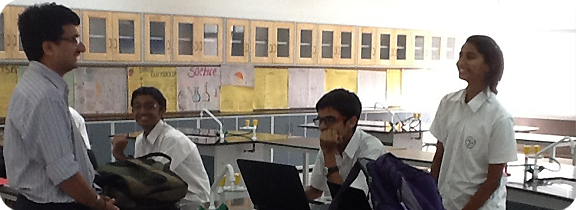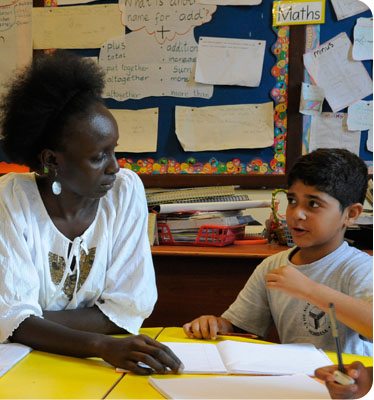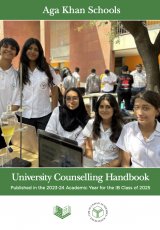
Faculty Development
Promoting excellence in teaching, both on campus and more broadly, is a fundamental goal of the Aga Khan Academies.
The effort to establish a Professional Development Centre (PDC) at each Academy is one of the outstanding features of the network. The PDC aims to strengthen the profession of teaching in the region by providing substantial professional learning opportunities and modelling highly effective educational practice.
Developing strength in teaching
The Academies aim to identify and develop teachers of the highest quality who are committed to both the all-round development of young people and to their own professional excellence. The Academy PDCs support excellence by striving to model best practices in teaching and learning within all of its classes and by providing high quality development opportunities for all Academy teachers.
Faculty members are also enriched by opportunities to work collaboratively with more experienced colleagues from around the globe and to teach abroad within the Aga Khan Academies network.
Investing in teachers
In addition to a broad programme of professional development for faculty and staff, the Academy PDCs offer substantial programmes under their Professional Learning for Educators Series (PLES) for teachers in local government, independent and not-for profit schools.

The PLES programmes are specifically designed by the Aga Khan Academies to respond to the needs of teachers, as identified through extensive market research and dialogue with government officials and education departments.
The series includes programmes for teachers in various subject areas as well as specialised programmes focussing on the skills and capabilities required for effective teaching.
Each programme builds professional competence by focussing equally on enhancing teachers’ subject knowledge and on how best to teach that subject. Each provides participants with a balance of intensive facilitated learning activities followed by an extended period of assisted application and observation within the context of their own classrooms.
To read about participants' experience of these programmes, click here.
"In this ambition, we are heartened by an important new World Bank study which indicates that it is not the quantity of time or money that leads to educational success, but rather the quality of specific educational experiences. The stimulus provided by extraordinary teachers and exceptional companions is most important."




